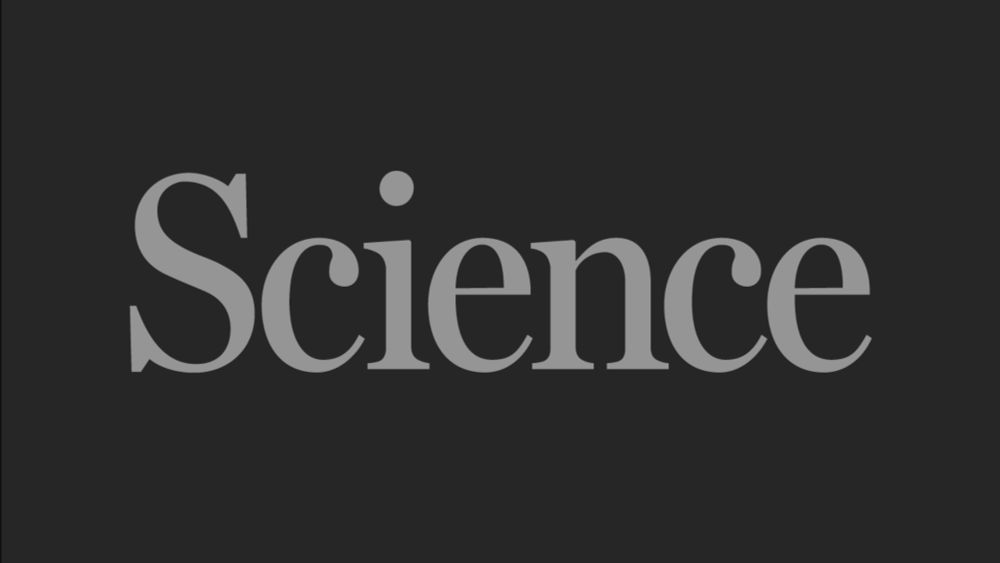
Can general artificial intelligence emerge by not following the evolution of complex brains? In this 2022 paper with @brigan.bsky.social we argued that embodiment, mind reading (mirror systems), mental time traveling... are necessary conditions
www.mdpi.com/1099-4300/24... @anilseth.bsky.social
11.10.2025 13:53 — 👍 37 🔁 9 💬 3 📌 4
Robot personhood/rights is conceptually bogus and legally puts more power/rights in the hands of those that develop and deploy robots/AI systems
firstmonday.org/ojs/index.ph...
05.10.2025 20:28 — 👍 188 🔁 63 💬 4 📌 6
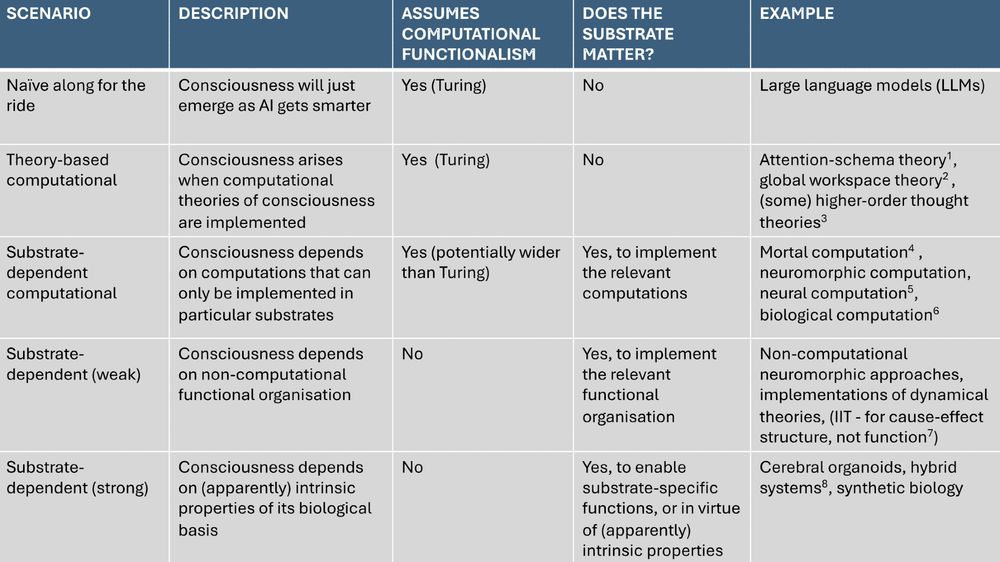
𝗖𝗼𝗻𝘀𝗰𝗶𝗼𝘂𝘀 𝗮𝗿𝘁𝗶𝗳𝗶𝗰𝗶𝗮𝗹 𝗶𝗻𝘁𝗲𝗹𝗹𝗶𝗴𝗲𝗻𝗰𝗲 𝗮𝗻𝗱 𝗯𝗶𝗼𝗹𝗼𝗴𝗶𝗰𝗮𝗹 𝗻𝗮𝘁𝘂𝗿𝗮𝗹𝗶𝘀𝗺
Is consciousness tied to biological brains?
Neuro&Philo Salon present+discussion with @anilseth.bsky.social of his BBS target paper!
October 23, noon USA eastern
#neuroskyence
Register: umd.zoom.us/meeting/regi...
doi.org/10.1017/S014...
05.10.2025 12:14 — 👍 77 🔁 25 💬 5 📌 4

Delighted that our paper on 'Delegation to AI can increase dishonest behaviour' is featured today on the cover of @nature.com
Paper: www.nature.com/articles/s41...
02.10.2025 07:51 — 👍 12 🔁 5 💬 0 📌 0

Beyond Newtonian causation in neuroscience
The traditional mechanistic framework must give way to a richer understanding of how brains actually generate behavior over time.
@pessoabrain.bsky.social talks to @wiringthebrain.bsky.social, @aliyarumana.bsky.social and Peter Ulric Tse about the need for neuroscience’s traditional mechanistic framework to give way to a richer understanding of how brains generate behavior.
#neuroskyence
www.thetransmitter.org/the-big-pict...
22.09.2025 16:28 — 👍 38 🔁 14 💬 1 📌 0

News
Ant queen lays eggs that hatch into two species
Bizarre discovery of interspecies cloning “almost impossible to believe,” biologists say
Iberian harvester ants are the only known organism that propagates two species by itself, according to new research.
Learn more: https://scim.ag/47sVFyS
15.09.2025 13:39 — 👍 107 🔁 31 💬 2 📌 5

Center for the Alignment of AI Alignment Centers
We align the aligners
Very glad to see that someone is doing the important work of aligning AI alignment. alignmentalignment.ai
11.09.2025 13:04 — 👍 412 🔁 107 💬 22 📌 49
Reposting to hopefully get this in the feeds of fellow science journalists 🧪
Hats off to the responsible people down in the trenches doing the hard work of debunking all the nonsense about autism that's been pouring out of the gate to hell that RFK Jr. opened up in his office.
07.09.2025 11:58 — 👍 27 🔁 15 💬 1 📌 3

Abstract: Under the banner of progress, products have been uncritically adopted or
even imposed on users — in past centuries with tobacco and combustion engines, and in
the 21st with social media. For these collective blunders, we now regret our involvement or
apathy as scientists, and society struggles to put the genie back in the bottle. Currently, we
are similarly entangled with artificial intelligence (AI) technology. For example, software updates are rolled out seamlessly and non-consensually, Microsoft Office is bundled with chatbots, and we, our students, and our employers have had no say, as it is not
considered a valid position to reject AI technologies in our teaching and research. This
is why in June 2025, we co-authored an Open Letter calling on our employers to reverse
and rethink their stance on uncritically adopting AI technologies. In this position piece,
we expound on why universities must take their role seriously toa) counter the technology
industry’s marketing, hype, and harm; and to b) safeguard higher education, critical
thinking, expertise, academic freedom, and scientific integrity. We include pointers to
relevant work to further inform our colleagues.

Figure 1. A cartoon set theoretic view on various terms (see Table 1) used when discussing the superset AI
(black outline, hatched background): LLMs are in orange; ANNs are in magenta; generative models are
in blue; and finally, chatbots are in green. Where these intersect, the colours reflect that, e.g. generative adversarial network (GAN) and Boltzmann machine (BM) models are in the purple subset because they are
both generative and ANNs. In the case of proprietary closed source models, e.g. OpenAI’s ChatGPT and
Apple’s Siri, we cannot verify their implementation and so academics can only make educated guesses (cf.
Dingemanse 2025). Undefined terms used above: BERT (Devlin et al. 2019); AlexNet (Krizhevsky et al.
2017); A.L.I.C.E. (Wallace 2009); ELIZA (Weizenbaum 1966); Jabberwacky (Twist 2003); linear discriminant analysis (LDA); quadratic discriminant analysis (QDA).

Table 1. Below some of the typical terminological disarray is untangled. Importantly, none of these terms
are orthogonal nor do they exclusively pick out the types of products we may wish to critique or proscribe.

Protecting the Ecosystem of Human Knowledge: Five Principles
Finally! 🤩 Our position piece: Against the Uncritical Adoption of 'AI' Technologies in Academia:
doi.org/10.5281/zeno...
We unpick the tech industry’s marketing, hype, & harm; and we argue for safeguarding higher education, critical
thinking, expertise, academic freedom, & scientific integrity.
1/n
06.09.2025 08:13 — 👍 3092 🔁 1568 💬 97 📌 247
has a little cry about this — solidarity with Ireland-based comrades 🥰
04.09.2025 12:19 — 👍 19 🔁 5 💬 0 📌 0

Why do societies reliably develop strikingly similar traditions like dance songs, hero stories, shamanism & justice institutions?
In a new BBS target article, I propose a theory for such "super-attractors" + cultural evolution more broadly. Now open for commentary: www.cambridge.org/core/journal...
25.08.2025 14:47 — 👍 65 🔁 28 💬 1 📌 1

To be conscious is to be an experiencing subject. This can be defined not in terms of computational functions or particular biological substrates, but rather in terms of relations: between subject and world, between parts of the subject, and through time. These kinds of relations – comprising a conscious mode of being – may well be implementable in artificial systems.
Consciousness needs a subject osf.io/preprints/ps... - new preprint with Carolyn Dicey Jennings @cdj.bsky.social (commentary on Anil Seth's BBS piece)
22.08.2025 07:09 — 👍 28 🔁 11 💬 1 📌 2
It was an exciting journey led by Sergi! 😃 Here a thread you can find out how the diversification process in arcade games follows the principles of macroevolution and metabolic allometry: including "hat-like pattern" of diversity change and persistence of the 'living fossils'👇
🧪 ⚒️ #Paleobio #EvoBio
20.08.2025 13:32 — 👍 13 🔁 6 💬 0 📌 0
Statements like "X% of trait Y of an individual can be attributed to their genetic makeup" promote fundamental misconceptions about the nature of genetic effects.
Here's one of my prior short threads explaining the issue:
18.08.2025 08:16 — 👍 32 🔁 14 💬 2 📌 0
𝗪𝗵𝗮𝘁 𝗺𝗼𝘁𝗶𝘃𝗮𝘁𝗲𝘀 𝗮𝗻𝗶𝗺𝗮𝗹𝘀 𝘁𝗼 𝗮𝗰𝘁, 𝘄𝗵𝗮𝘁 𝗶𝘀 𝗺𝗼𝘁𝗶𝘃𝗮𝘁𝗶𝗼𝗻?
What are the most developed frameworks of the brain basis of motivation?
Older ideas, new ideas, etc.
#neuroskyence
08.08.2025 19:57 — 👍 75 🔁 16 💬 19 📌 2

🤔 How can we study #consciousness between people, at the social level? 🧠✨ New #preprint co-led by Anne Monnier & Lena Adel: “Now is the Time: Operationalizing Generative Neurophenomenology through Interpersonal Methods” 🧵(1/3)
08.08.2025 15:16 — 👍 35 🔁 14 💬 2 📌 0
YouTube video by Gerstner Lab
From Spikes To Rates
Is it possible to go from spikes to rates without averaging?
We show how to exactly map recurrent spiking networks into recurrent rate networks, with the same number of neurons. No temporal or spatial averaging needed!
Presented at Gatsby Neural Dynamics Workshop, London.
08.08.2025 15:25 — 👍 59 🔁 17 💬 2 📌 1
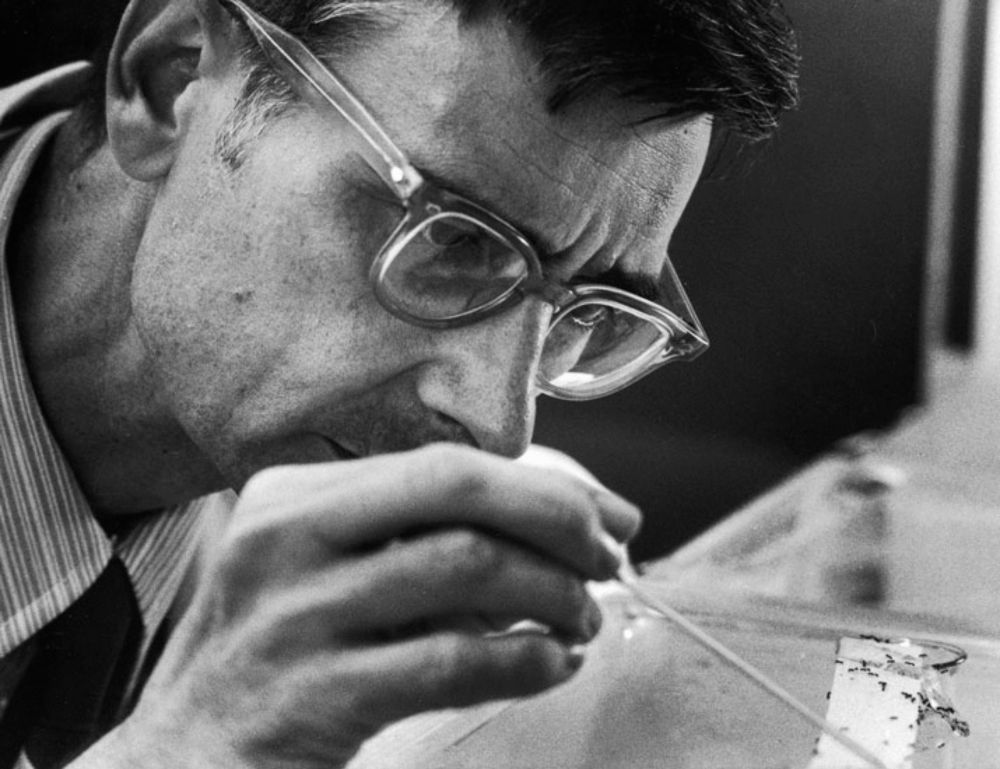
Revisiting the human sociobiology debate
What have we learned 50 years on?
🚨 New, short article by myself, Clark Barrett and @kevinlala.bsky.social on the legacy of Wilson's 'Sociobiology: The New Synthesis', which was published 50 years ago.
@science.org #ehbea #histbiol #evobio #psyscisky
Revisiting the human sociobiology debate |Science www.science.org/doi/10.1126/...
08.08.2025 09:39 — 👍 56 🔁 27 💬 1 📌 2
PNAS
Proceedings of the National Academy of Sciences (PNAS), a peer reviewed journal of the National Academy of Sciences (NAS) - an authoritative source of high-impact, original research that broadly spans...
🚨Out in PNAS🚨
with @joshtenenbaum.bsky.social & @rebeccasaxe.bsky.social
Punishment, even when intended to teach norms and change minds for the good, may backfire.
Our computational cognitive model explains why!
Paper: tinyurl.com/yc7fs4x7
News: tinyurl.com/3h3446wu
🧵
08.08.2025 14:04 — 👍 65 🔁 28 💬 3 📌 1

Big cities are vibrant hubs of culture, but why exactly is that? Now out in @natcomms.nature.com, we analysed music listening patterns of over 2.5 million people and demographics to examine mechanisms driving cultural diversity. With @researchdeezer.bsky.social @norijacoby.bsky.social
Highlights ⬇
04.06.2025 17:30 — 👍 88 🔁 36 💬 3 📌 5
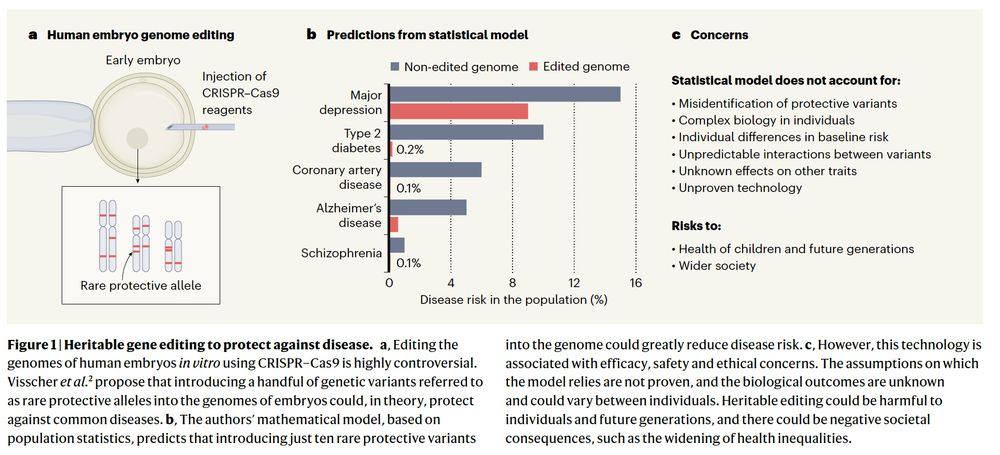
Human embryo editing against disease is unsafe and unproven - despite rosy predictions pubmed.ncbi.nlm.nih.gov/39779987/ - with @hankgreely.bsky.social and @shaicarmi.bsky.social
06.08.2025 19:29 — 👍 14 🔁 8 💬 1 📌 0
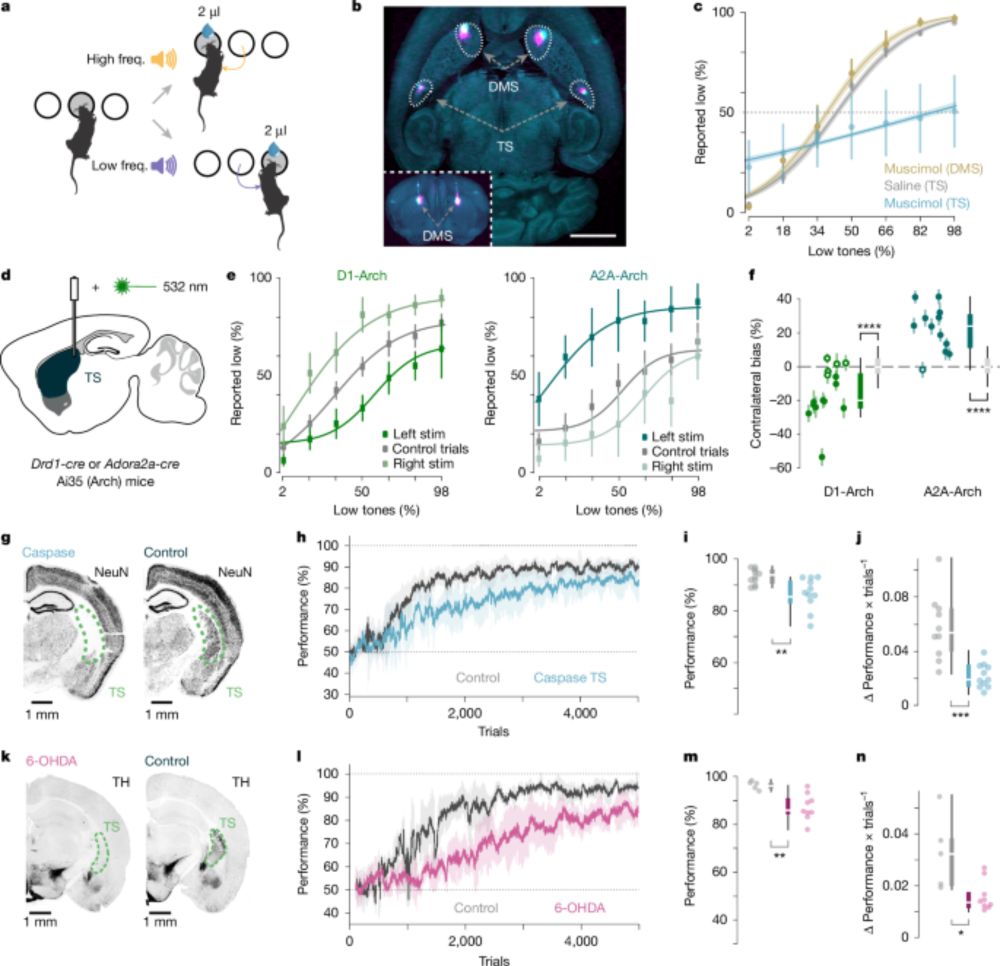
Dopaminergic action prediction errors serve as a value-free teaching signal - Nature
Dopaminergic action prediction error signals are used by mice as a value-free teaching signal to reinforce stable sound–action associations in the tail of the striatum.
This is intetresting, paper argues that dopamine also encodes "action prediction errors", i.e. differences between actions you predict you will make and actions you do, regardless of reward. Could be used to reinforce habits for repetitive voluntary behaviours:
www.nature.com/articles/s41...
🧠📈 🧪
31.07.2025 15:39 — 👍 49 🔁 10 💬 0 📌 0
A few years ago, with @tyrellturing.bsky.social @patrickmineault.bsky.social and others, we showed one single objective (prediction) was sufficient for explaining specialized pathways of mouse visual cortex: tinyurl.com/2vsjbve7
Super cool to see the same observation now for human visual cortex.
31.07.2025 13:13 — 👍 39 🔁 8 💬 2 📌 0
Emeritus Professor of Psych at
Stirling University
Trumpet player
Statistic-ist
Grandpa
Canadian 🇨🇦 Assistant Professor at Tilburg University 🇳🇱, interested in the neuroscience of decision making, aging, and Alzheimer's disease. Also a dad 🤓
More at https://www.reid-lab.org
Theoretical Physicist.
(She/her/hers)
From Eastern KY.
Federación de Jóvenes Investigadoras Precarias
https://fji.precarios.org/
Cultura visual y digital, medios e historia
Doctor en historia
Research Fellow @eegcam.bsky.social & Emmanuel College, Cambridge University 🍃| Former Public Scholars Fellow at Sapiens | Book Review Editor @ishe-society.bsky.social 📚| Editor, Hunter Gatherer Research | 👩🏽💻 https://ceciliapad.github.io/web/
Global advisor on better cities, city planning, transportation & urban change. City planner + urbanist leading @ToderianUW.bsky.social. Past Chief Planner for Vancouver BC. Past/founding President of @CanUrbanism.bsky.social. International speaker & media.
✨i'm in my pop front era ✨
i write things to change minds. anarcho-spreadsheetist. learning the hard way, but at least im learning.
doordash driver for my sins
https://wedontagree.net/
📍 AUS
Director of Language & Genetics at Max Planck Institute, Nijmegen.
Tracing the complex connections between genes, brains, speech & language.
Website: https://www.mpi.nl/people/fisher-simon-e
ORCID: https://orcid.org/0000-0002-3132-1996
Postdoctoral researcher studying social interaction and the self, with a focus on neurosocial minorities.
Website: https://sites.google.com/site/dimitrisbolis/
Stanford Law prof, working on ethical, legal, and social issues in the biosciences. Sports fan (especially Stanford sports). And strongly opposed to the illegal & immoral Russian invasion of Ukraine. Slava Ukraini!
Collecting all neuroscience events in the Paris region.
www.neurocalendar.eu
We’re a nonpartisan organization fighting for your rights to connect and communicate.
Learn more: FreePress.net
Professor, historian, husband, dad, scouser, gobby. Author of Demobbed (2009), Browned Off & Bloody-Minded (2015), Britain at Bay (2020), Advance Britannia (2025). “Awesome but a bit boring” (RMP). Personal account.
into brain evolution & development, open science, art & science https://www.youtube.com/watch?v=6hMNZHsrNHw, music, making, javascript, contemporary dance https://www.youtube.com/watch?v=OZfHj7F2FzQ
website: katjaq.github.io
Philosophy of learning, evolution, & development, but make it metaphysics.
It‘s not a point of view, it’s a point of *do*. Cognition is like digestion. Plant I > AI. Phil of Mind = Phil of Biology.
https://philosophy.stanford.edu/people/mariel-goddu
PhD student at INRIA Flowers team. MVA master
reytuag.github.io/gautier-hamon/







